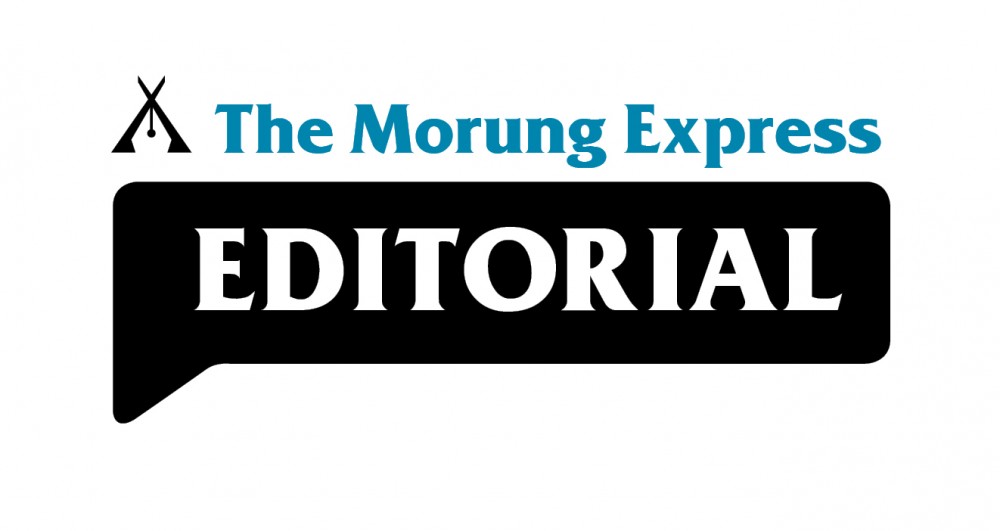
Akangjungla
According to statistics, approximately one billion people which comprises 15 percent of the world population lives with some form of disability. According to the 2011 census, in India, there are approximately 26.8 million disabled people, while in Nagaland there are at 29,631 people with various disabilities.
‘This figure is underreported, in my opinion, and the actual number would be much higher In any case, this is the official number-29,631 people with disability in Nagaland,’ Nagaland’s State Commissioner for Persons with Disabilities has cited in an op-ed written on the occasion of Nagaland Baptist Church Association (NBCC) Disability Sunday in 2016. NBCC has designated the third Sunday of November every year as Persons with Disability Sunday, a day for churches and fellowships to focus on celebrating the abilities and involvement of disabled people. ‘Here’s a question I always ask – how many of these people with disabilities do you encounter in your everyday life – in the streets, markets, schools, playgrounds, offices, churches, public events or in family celebrations?’ the State Commissioner had put across in the same op-ed.
In most churches in Nagaland, where enormous preparations are underway to celebrate the sesquicentennial (150 years) of Christianity in the State, the sight of the Persons with Disabilities is uncommon. They are certainly not accommodated in church, definitely not participating like the rest of the congregation. Often People with Disabilities are underrepresented in the Church which is an integral part of the social order and plays a central role in any Naga society. Their participation in the Church community is very restricted. One principal for the Church and also for the Christian-based organisation is that the church - ‘the body is a unit, though it is made up of many parts; and though all its parts are many, they form one body.’ The Church is ‘one’ however, when it comes to the inclusion of Persons with Disabilities, this ‘unit’ is controlled by misconceptions, fear and lack of understanding, ignorance and false impressions.
The Ao Baptist Church Associations which claims to be one of the largest Church Associations under the NBCC initiated a ground breaking event for Differently-Abled Persons at its headquarters in Impur under Mokokchung district on June 28 last. The ‘Social Concern’ under the association organised a special programme for the Differently-Abled Persons for Zone 1-7 of Ao Baptist Churches in commemoration of its sesquicentennial celebration. Among others, a total of 119 Differently-Abled Persons were part of this programme. It was historic, as 20 Differently-Abled Persons performed during the talent presentation, ‘which was the highlight of the programme, as it reflected the gift of God to every individual.’ In an update, the Executive Secretary of the associations asserted that ‘with no disparity, we need to love and care for each other and show equal recognition.’
Irrespective of the associations and denominations, like the initiative of the Social Concern, a small section of the churches in Nagaland are finally recognising the contributions People with Disabilities can make to the church. Nevertheless, more than the idea and agenda of ‘inclusion,’ there is a greater need for the church to be involved socially through practical action and creating an enabling environment to welcome the People with Disabilities.
Unquestionably, the Church can start with correcting the inaccessible buildings by installing ramps, constructing accessible toilets and incorporating sign-language interpreters in all its activities. Also, as opposed to the incorrect teaching of stressing on the physical and spiritual healing alone, perhaps, the church needs to find the courage to seek forgiveness for its inability to accept the People with Disabilities as ‘equals’ and ultimately, the church would require a paradigm turnaround from the way it has understood and handled its relationship with the People with Disabilities. Along with these critical reflections, as the State Commissioner states, ‘The Church must lead the movement away from ignorance, insensitivity, and indifference toward acceptance and reconciliation, actively seeking to remove barriers which exclude disabled persons from all aspects of society. It has the opportunity and capacity to transform the lives of thousands of people with disabilities, their families and carers.’
Comments can be sent to akangjungla@gmail.com






